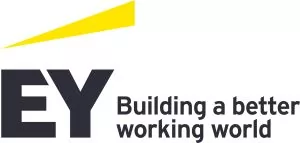In many countries the tax leaders notice changes in tax authority scrutiny of the business affairs especially as governments begin to address budgetary pressures arising from responding to the COVID-19 pandemic. Bulgaria does not make an exception in this regard.
Read about two recent court judgements on cases lead by EY Bulgaria interpreting both national and EU law and principles which have created new case law and could open the door for discussions and claims on behalf of other businesses.
Lately Bulgarian businesses face increased tax scrutiny, especially on large businesses. Controversy arises over risks which have not been in place before and it often results in tax disputes. Often the remedies for successful defence are based on EU law.
EY Bulgaria's team has recently concluded cases which are notable for their high complexity and have led to favourable rulings and new case law:
Bulgarian National TV (BNT)
The first one relates to the VAT treatment of economic activities subsidized by the public budget. EY Bulgaria's tax controversy team has represented the Bulgaria's public broadcaster on the case before both the national and European court.
Although, at first sight, the application of VAT to such activities seems to be clear enough, it has been a source of debate in many member states last years. The case at hand encompasses several EU and national tax specifics along with complex fact pattern. The questions raised before the CJEU concern in their essence whether the activities of the Bulgarian public broadcaster are in fact a VAT exempt supply to the public audience which is paid by the state through a subsidy, which in effect would mean that for VAT purposes the broadcaster performs both taxable and exempt activities and result in proportional VAT deduction for all purchases.
Despite controversial AG opinion, finally a very favorable decision of CJEU was achieved. CJEU confirmed that the social (rather than the commercial) activity of the broadcaster is out of scope of VAT and that the method of financing their purchases is irrelevant to the right of VAT deduction."
It's a ruling that could have widespread consequences for public funded organizations as well as businesses across a range of sectors, from media to transport, banking and energy receiving grants as well as such with loss-making activities or applying exemption in public interest.
Case concerning import duties
The case concerns a fast-growing manufacturer of home and personal care products, dairy food and snack food, and relates to import duties. The importation of a raw material used in the production has been subject to wrong binding tariff information issued by the customs authorities. Based on the latter the entity has been paying import duties for several years. However, all binding tariff informations on this raw material was annulled ex officio by the EC. The entity submitted a refund claim for the overpaid import duties, which has been rejected by the Bulgarian customs authorities. The case reached the court and EY Bulgaria's team obtained a favorable decision under EU law and principles confirming that in the case the import duties were unduly paid and the taxpayers has been misled by the act issued by the respective authorities.
The content of this article is intended to provide a general guide to the subject matter. Specialist advice should be sought about your specific circumstances.



